The Association for Uncrewed Vehicle Systems International (AUVSI) has launched a fierce attack on California‘s Assembly Bill 1160 (AB 1160), claiming it threatens national security by channeling state tax dollars to Chinese military companies via drone purchases. In a letter (see below) dated April 1, 2025, addressed to Assembly Public Safety Committee Chair Nick Shultz, AUVSI‘s Associate Vice President and Counsel for Regulatory Affairs, Scott Shtofman, calls the bill a “wolf in sheep’s clothing” that “creates new and ongoing loopholes” for drones from “Chinese military companies.” Their rhetoric is bold, but their evidence is flimsy—built on contested labels, vague warnings, and a glaring disregard for the bill’s actual intent. This DroneXL article dismantles AUVSI’s position, revealing a lobbying effort dressed up as concern, more about protecting U.S. drone makers than securing California’s skies or saving people’s lives.
Decoding AB 1160: What It Really Says
The Bill’s Core Provisions
AB 1160, authored by Assembly Member Wilson and amended on March 24, 2025, regulates drone purchases by California law enforcement agencies. It’s about unmanned, remotely piloted vehicles used for public safety. Starting January 1, 2027, the bill prohibits agencies from buying drones unless they meet one of two conditions:
- Data Collection Control: The drone has an option to disable any data collection programs not essential to its function.
- U.S. Data Storage: All collected data (e.g., video, photos) is stored with an American company.
Drones bought before 2027 are exempt, and the bill builds on AB 481 (2021), which mandates public oversight of military equipment like drones. Its focus is clear: Data Security, not the drones’ country of origin. China, DJI, or any manufacturer goes unmentioned—AB 1160 is agnostic about where the hardware comes from.
AUVSI’s Spin
AUVSI’s letter frames AB 1160 as a Trojan horse, alleging it “would enable drones manufactured by Chinese military companies” to infiltrate California agencies. They point to the U.S. Department of Defense‘s (DoD) designation of such companies—implicitly DJI—while warning of “new loopholes” that undermine security. But the bill’s text contradicts this. It doesn’t carve out exceptions for Chinese drones; it sets universal data standards. AUVSI’s “loophole” claim assumes these conditions can’t be met by foreign manufacturers, yet they offer no proof. Their wolf-in-sheep’s-clothing metaphor is dramatic but detached from the bill’s plain language.
READ MORE: The Truth Uncovered: AUVSI’s Real Stance on DJI Drone Ban
Breaking Down AUVSI’s Arguments
1. The “Chinese Military Company” Label
AUVSI’s Claim: “AB 1160 would enable drones manufactured by Chinese military companies, as designated by the U.S. Department of Defense, to be purchased by California state and local entities.”
The Reality: AUVSI hinges its argument on the DoD’s October 2022 designation of DJI as a “Chinese military company” under Section 1260H of the National Defense Authorization Act. But that label is under fire. DJI sued the DoD in 2024, calling the decision “unlawful” and arguing it lacks evidence of military ties. DJI claims it’s a civilian tech firm—never designing military gear—and points to its suspension of sales in Russia and Ukraine as proof of neutrality. The DoD cites China’s military-civil fusion policy, but no public data links DJI to the People’s Liberation Army. AUVSI treats this disputed tag as gospel, ignoring the ongoing legal battle. Contrast this with Huawei, where U.S. bans rest on documented espionage concerns—DJI’s case lacks that weight.
2. Tax Dollars to the Enemy
AUVSI’s Claim: “Sending Californian tax dollars to the Chinese military is a position we cannot and will not support.”
The Reality: This is alarmist hyperbole. AB 1160 doesn’t mandate buying Chinese drones—it sets data security rules any drone must meet. If a DJI drone complies (e.g., with local data mode or U.S. storage), it’s eligible, but so is any American-made drone. California agencies already use DJI for cost and performance—think Wildfire mapping or rescues—not military handouts. AUVSI provides no figures: no estimate of tax dollars at stake, no proof DJI funnels cash to Beijing’s military. In 2023, U.S. imports from China totaled $427 billion (U.S. Census Bureau)—DJI’s slice is trivial. AUVSI’s outrage feels performative when cranes and phones from China dwarf drone spending.
3. “Well-Understood” Risks
AUVSI’s Claim: “The risks of operating foreign drones from adversarial nations and Chinese military companies are not new and are very well understood.”
The Reality: What risks? AUVSI doesn’t specify—cyberattacks? Data leaks? They lean on a 2017 Army memo flagging DJI “vulnerabilities,” but a 2021 Pentagon audit found no hard evidence of malice. Booz Allen Hamilton’s 2019 tests also cleared DJI’s data practices. The Department of the Interior even developed special “Government Edition” drones in partnership with Chinese drone maker DJI. “Well-understood” sounds authoritative, but without details, it’s empty. Meanwhile, 80% of U.S. port cranes are Chinese-made (American Association of Port Authorities), handling critical logistics data. AUVSI’s drone fixation looks arbitrary next to these giants.
4. National Security Loopholes
AUVSI’s Claim: “Congress knows that such actions [software mitigations or local-only mode] would not address the national security concerns.”
The Reality: AUVSI nods to the 2023 American Security Drone Act, which bans federal use of Chinese drones, but skips the fine print: Congress allows waivers for critical needs. Why? Because DJI’s tech often beats U.S. alternatives in emergencies. The FAA and DHS greenlight DJI for first responders with strict protocols—offline modes, U.S. software—suggesting mitigations work. AUVSI dismisses these fixes without explaining why they fail. If the threat were absolute, waivers wouldn’t exist. Their argument unravels under scrutiny.
5. Data Over Lives
AUVSI’s Claim: “These risks are, of course, secondary to the threat of the state’s data.”
The Reality: This flips priorities upside down. AUVSI downplays drones’ role in saving lives—think thermal imaging for wildfires—while hyping undefined “data threats.” What data? Flight paths? Budgets? They don’t say. DJI’s Matrice 4T ($8,878) offers 49-minute flights, and superior sensors; Skydio‘s X2 ($10,999) lags at 35 minutes. For cash-strapped agencies, DJI’s edge is vital. AUVSI’s willing to sacrifice that for hypothetical risks, showing their true colors.
AUVSI’s Motives: Lobbying, Not Security
Green sUAS and Market Protection
AUVSI’s “Partnership for Drone Competitiveness” pushes Green sUAS—U.S.-made drones echoing the DoD’s Blue sUAS list. Both promise “secure” options, but many use Chinese parts (e.g., Skydio batteries are made in China). Their pitch is American jobs, yet costs soar: Blue sUAS drones hit $15,000 versus DJI’s $5,000 peers (Drone Industry Insights). AUVSI’s members—like Skydio—benefit from bans, not taxpayers or first responders. This isn’t security; it’s a sales pitch.

A History of Hype
AUVSI’s playbook is worn. In 2020, they cheered DJI’s initial ban, citing “data risks” with no proof—Forbes got anecdotes, not audits. The 2023 Drone Act push repeated the pattern: loud warnings, silent on evidence. They’re a trade group, not a watchdog.
The Stakes: Cost, Capability, and Clarity
Economic Impact
Banning Chinese drones spikes costs. A Skydio X10 ($20,000) offers 40 minutes of flight; DJI’s M350 RTK ($14,000) delivers 55 with better payload options. For agencies juggling budgets, the math matters. AUVSI’s vision means pricier, weaker tools—potentially deadly trade-offs.
Policy Muddle
AB 1160’s data focus fits federal trends—FAA rules prioritize safety, not origin. AUVSI’s ban obsession clashes with practical exemptions (e.g., FEMA’s DJI use). If mitigations suffice federally, why not here? Their stance sows confusion, not solutions.
The Verdict: AUVSI’s Case Collapses
AUVSI’s attack on AB 1160 is a house of cards—shaky labels, baseless fears, and a clear agenda. They brand DJI a military pawn without proof, cry data doom while ignoring bigger threats, and sideline public safety for profit. California lawmakers should see through this: demand specifics—dates, breaches, dollars—or dismiss AUVSI’s noise. First responders need reliable drones, not lobbying dogma.
DroneXL’s Stance
DJI’s 70% U.S. market share reflects quality, not conspiracy. AUVSI’s scare tactics crumble without evidence. California should prioritize facts—and lives—over fear.
AUVSI’s Letter
Here’s the text letter from AUVSI’s Scott Shtofman:
April 1, 2025
The Honorable Nick Shultz, Chair
Assembly Committee on Public Safety
1020 N Street, Room 111
Sacramento, CA 95814RE: AB 1160 (Wilson): Military Equipment – Oppose
Chair Shultz,
My name is Scott Shtofman, and I am the Associate Vice President and Counsel for Regulatory Affairs at the Association for Uncrewed Vehicle Systems International (AUVSI). AUVSI is the world’s largest nonprofit organization dedicated to the advancement of uncrewed systems, autonomy, and robotics. Our association represents corporations and leaders from more than 60 countries across industry, government, and academia in the defense, civil and commercial sectors.
AUVSI’s Partnership for Drone Competitiveness is a coalition of U.S. and Allied drone and drone component manufacturers and enterprise users who are committed to strengthening the U.S. drone industry. The Partnership is built on a simple premise: that stronger U.S. leadership in the drone industry is better for everyone. You can read more about the Partnership in AUVSI’s Whitepaper published on our website.
We write to express our strong opposition to AB 1160 (Wilson), as amended. We have strong concerns over allowing the use of adversary drones with software mitigations. Specifically, AB 1160 would create new and ongoing loopholes by enabling drones manufactured by Chinese military companies, as designated by the U.S. Department of Defense, to be purchased by California state and local entities. Sending Californian tax dollars to the Chinese military is a position we cannot and will not support. To put it simply, the bill is a wolf in sheep’s clothing. By pretending to safeguard, the bill would provide a backdoor for our adversaries. California’s law should strive to protect the state’s cybersecurity and data. The language in this bill would take California backwards.
The risks of operating foreign drones from adversarial nations and Chinese military companies are not new and are very well understood. In 2017, the U.S. military began removing these systems from their Arsenal. In 2020, Congress codified the ban on Chinese drones for the U.S. military. In 2023, Congress enacted the American Security Drone Act extending the ban to the entire federal government. Congress continued this work in 2024 and enacted language which established a year-long transitional period that will begin prohibiting Chinese military drone manufacturers from selling new products in the United States. The U.S. Congress has not provided a carve out for adversarial systems with American software or those operated in local only mode. Congress knows that such actions would not address the national security concerns.
As the Federal Government continues to enact policies prohibiting the use of certain foreign-made drones, states that fail to comply with these regulations may find themselves ineligible for federal grants and contracts related to drone operations. These risks are, of course, secondary to the threat of the state’s data. We respectfully oppose the provisions in AB 1160 and ask you to do the same.
Respectfully,
Scott Shtofman
Scott Shtofman
AUVSI
AVP & Counsel, Regulatory Affairs
Discover more from DroneXL.co
Subscribe to get the latest posts sent to your email.



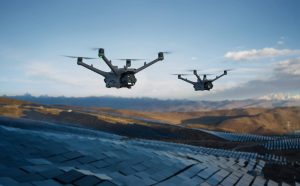
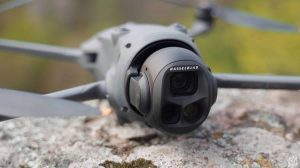

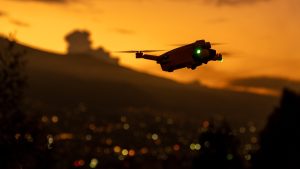
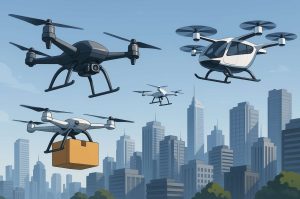

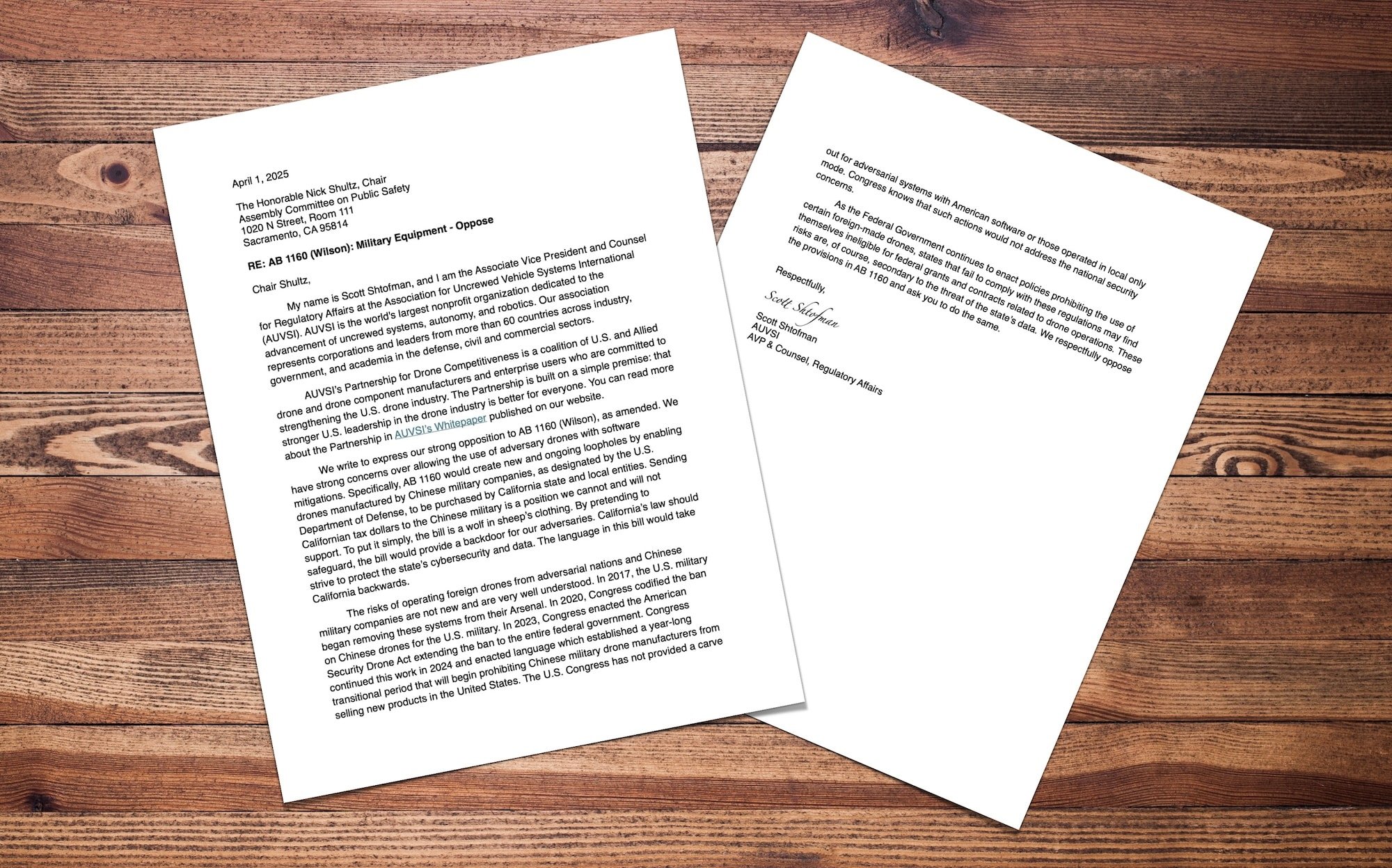

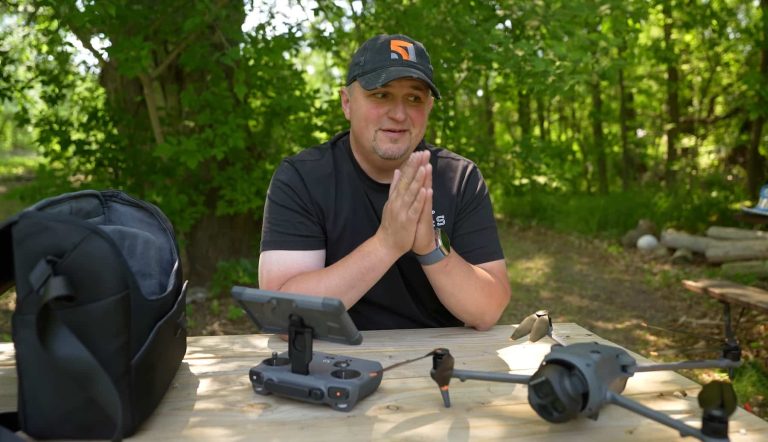



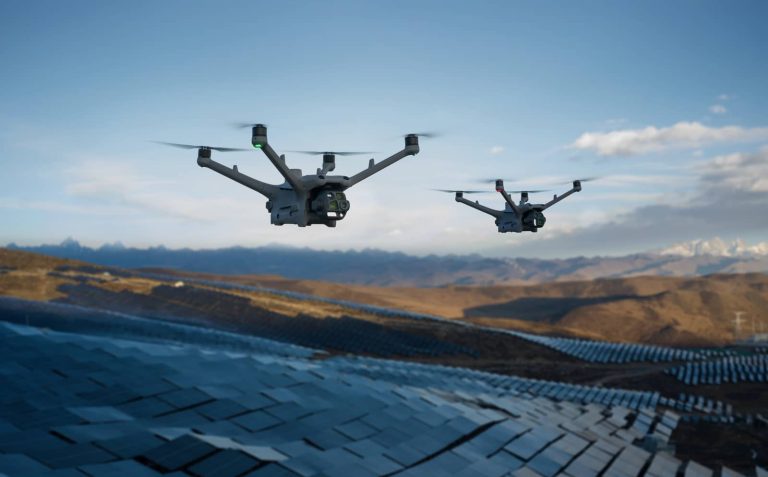
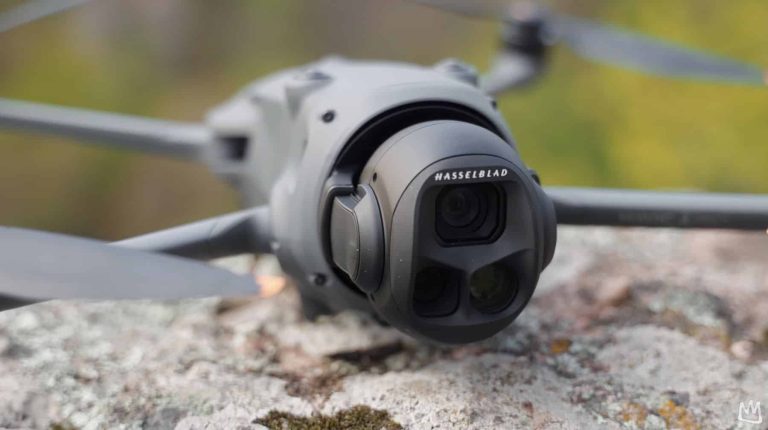

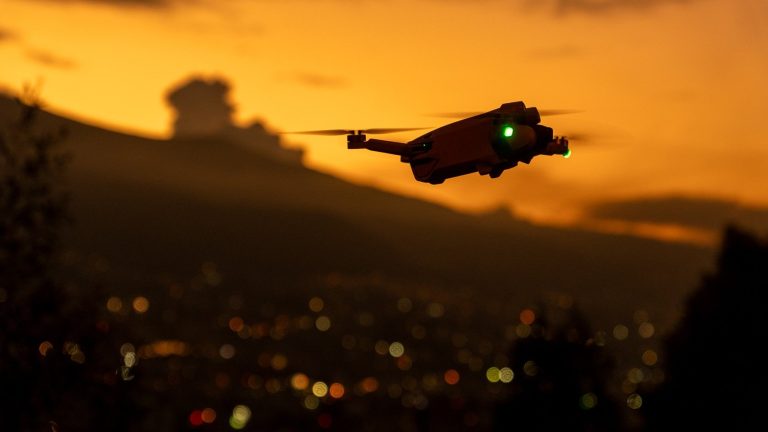
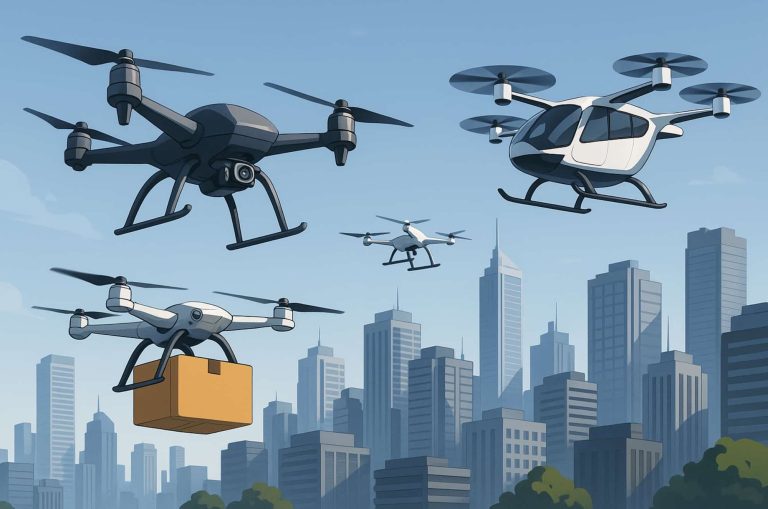
+ There are no comments
Add yours